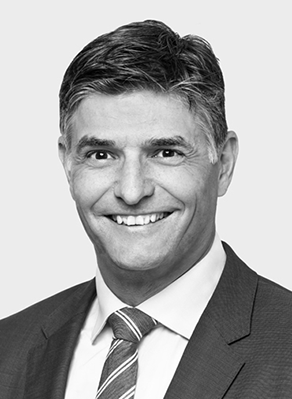2022 has been unprecedented in multiple ways, largely due to the fact that much of the world began a process of normalization after two years of pandemic measures. This transition impacted financial markets immensely, and will continue to for an unpredictable time to come. Such a year is worth reflecting on from multiple perspectives, also from that of Inquire Europe.

In February, we checked in with Theo Nijman, Academic Coordinator at the institute, to gain greater insight into the broader changes which are shaping the way the financial community is conducting and delivering its proprietary research. Regarding trends, he observed that “Research projects are increasingly focused on how to structure a portfolio; nowadays this is always done using data tested methods. Twenty years ago, the projects also sometimes included theoretical papers, for instance on derivative pricing; these elements of research have largely been shifted to specialized conferences. As the availability of data has drastically improved, most research is now reliant on European data rather than data coming out of the US. Of course there are new techniques that are used which were not heard of in the beginning of the century, such as machine learning, text analysis, copula’s and quantile regressions.”
Click here to read more.
Lasse Heje Pedersen from the Copenhagen Business School, NYU and principal at AQR addressed a possible ‘replication crisis’ in financial research with Inquire Europe during a webinar in April. This is a topic that has been widely discussed in academic spheres and in financial media. His research focuses on measuring which studies in the domain of financial economics are replicable, by addressing two important challenges: internal validity and external validity. Researchers have argued that some economic studies cannot be replicated using the same data or a slightly different methodology, making them internally invalid. Similarly, there have been concerns about external validity, the argument being that although studies can be robustly replicated, they are spurious and are not expected to be replicable using different samples or in other time periods. Pedersen succinctly summarized the main findings of the study: “82% of factor research is, by our estimates, replicable in a way that is very robust. Our research uses a different method than all the original papers, that is highly externally valid. This percentage may not be perfect – but it is surprisingly high.”
Click here to read more.


Before the summer break, the institute had the privilege of interacting with Ralph Koijen, AQR Capital Management Distinguished Service Professor of Finance and Fama Faculty Fellow at the University of Chicago’s Booth School of Business during a webinar on price shifts in financial markets. “The main message that we want to convey is that we think that markets are more inelastic than what is implied by standard asset pricing models. The advantage of that is that it may make financial markets more interpretable. Using the framework, it is possible to trace back asset price movements at any given point to individual investors or groups of investors. This offers a potential way to answer difficult questions, such as which investors moved the market during certain episodes. With this framework such questions hopefully become a lot more concrete and tangible.”
Click here to read more.
In late August we spoke with our Chairman of the Board Hans Fahlin about the most pressing themes within quant investing. One topic was the revival of the value factor: “The value factor had not been doing well for an unusually long time. When considering a very long history of value this period was an unusually long period for the value factor to underperform, versus the growth factor[…]What is now apparent is that we have the confirmation that it was indeed an exceptional situation and things are normalizing. The Gordon dividend discount model which says that when real interest rates rise, stocks that have more of their dividends long term in the future should cheapen more than stocks that have a more uniform distribution of dividends. From that point of view, you could claim that the rise of interest rates is the driver of the decline of growth stocks and that would explain the resurgence of value. The relationship between nominal interest rates and the return of growth compared to value is not really easy to piece out from the data. […] It seems intuitive that the reason growth stocks are now underperforming is that interest rates are higher and investors are now discounting their future growth rates. But this isn’t particularly easy to prove econometrically.”
Click here to read more.

In the autumn all our focus was on the seminar – the first in 2.5 years due to the pandemic – which took place in Marseille, France. Over the course of two days, participants enjoyed nine presentations on a diverse array of topics. Some of the notable topics and authors included: ‘Value versus Glamour Stocks: The Return of Irrational Exuberance?’ by Raul Leote de Carvalho (BNP Paribas); ‘ How do Funds Deviate from Benchmarks? Evidence from MSCI’s Inclusion of Chinese A-shares’ by Lennart Dekker; ‘Empirical evidence on the ownerschip and liquidity of real estate tokens’ by Laurens Swinkels; ‘Pricing currency risks’ by Magnus Dahlquist; and ‘Green Sentiment, Stock Returns and Corporate Behavior’ by Marie Brière. For those who were unable to attend, we have provided synopses of the presentations, which can be found on the ‘news’ portion of the website. Members are also able to access all research and presentations from the seminar if logged into their account.
THE INQUIRE PRIZE 2022
In November, the research committee awarded its annual prize to Marie Brière for her research ‘Green Sentiment, Stock Returns and Corporate Behavior’. She introduces her research by explaining: “In theory green assets are less risky and should thus have lower return in equilibrium, but they can also outperform in upward shifts towards green preferences. The past decade was a period of outperformance of green stocks; however, we see that these preferences can fluctuate and they can have a large impact on stock returns. Identifying the impact of green preferences is tricky because changes in investors’ preferences are not easily observable, and it is difficult to disentangle changes in preferences (driven by non-fundamental demand shocks), from changes in expectations about firms’ risk exposure and cash flows (fundamental demand). In our paper, we propose a novel way to estimate changes in investors’ non-fundamental preferences for green assets, and to quantify their impact on stock returns.”
Click here to read more.

Finally, we are looking forward to kicking off 2023 under the direction of Marie Brière who has been appointed the new Chair of Inquire Europe. She will replace Hans Fahlin as per 1 January 2023. “I am honoured to be selected by my peers,” says Marie. “We will work together to maximize the potential of the Institute, which does make a real, positive contribution amongst both investors and academics. Our main priority is to ensure that we are continuously encouraging the development of relevant scientific methods in the industry and fostering the research of the most talented academics in the field. Many thanks to Hans Fahlin, who has been a wonderful Chair since 2005”
